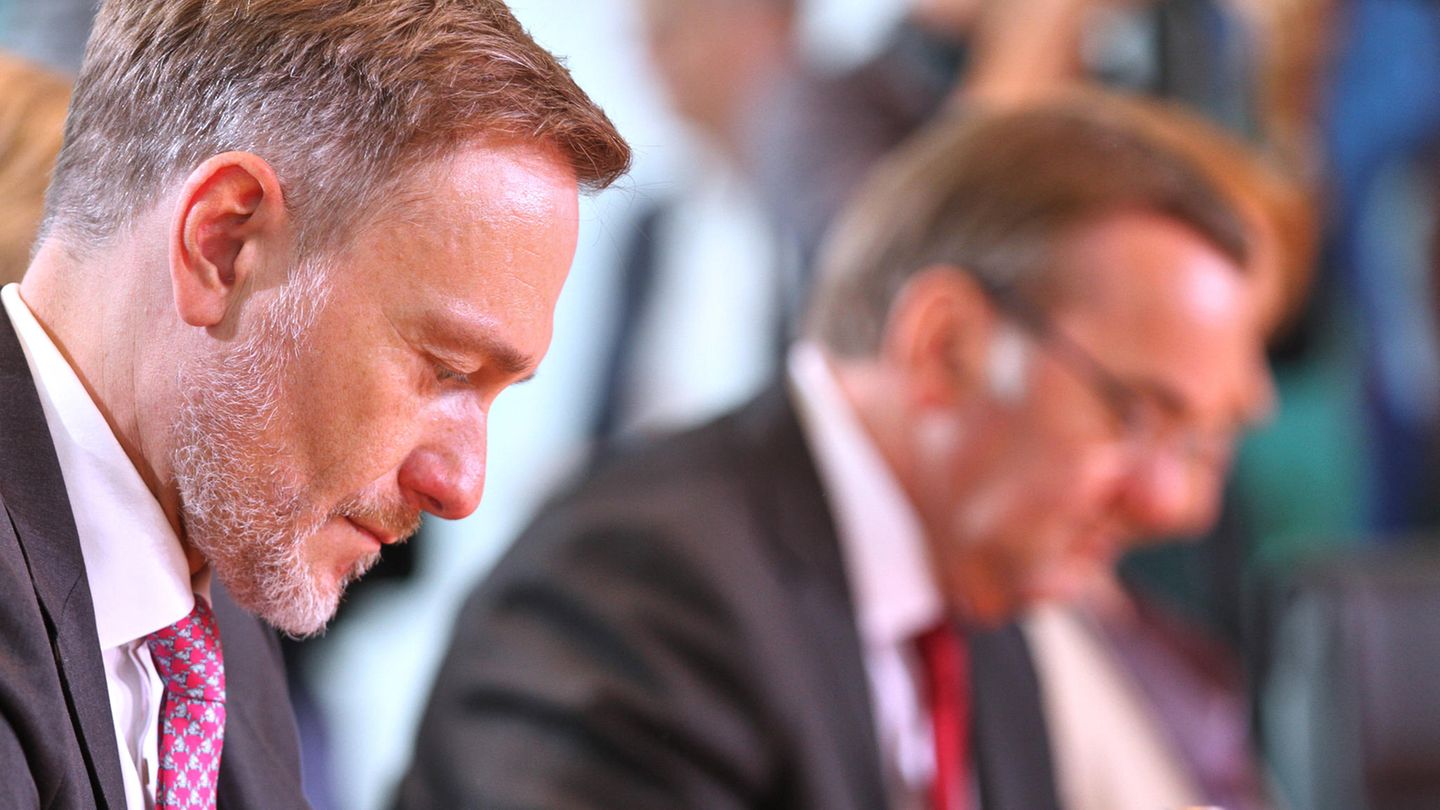According to a media report, the German government is not planning to further increase aid payments to Ukraine. This is evident from internal documents.
According to a media report, the German government does not want to provide any new aid payments for Ukraine. According to information from the “Frankfurter Allgemeine Sonntagszeitung” (FAS), according to the current budget planning, no new money is available for this purpose. Already approved material will mostly still be delivered, but additional applications from the Ministry of Defense should no longer be approved at the request of Chancellor Olaf Scholz (SPD), the report said.
No more money for Ukraine: Lindner turns to Pistorius
As the “FAS” learned from documents and emails as well as after discussions in several federal government buildings and in parliament, Finance Minister Christian Lindner (FDP) had passed on a corresponding request in a letter to Defense Minister Boris Pistorius (SPD) on August 5. It states that “new measures” may only be taken if “funding is secured” in the budget plans for this and the coming years. It should be ensured “that the upper limits are adhered to.”
The German government did not want to comment on the report. This means that “no statement has been made as to whether the facts are correct or not,” a government spokeswoman explained when asked by the AFP news agency. In principle, “Germany stands firmly by Ukraine’s side and is Ukraine’s biggest supporter in Europe, financially, economically and militarily.”
Payments in the current year are already included in the budget
Funds for Ukraine amounting to around eight billion euros have already been earmarked for the current year. The planned maximum limit for next year is four billion euros and has apparently already been overbooked.
According to “FAS”, confirmation of the rejection of further support payments came from the Bundestag’s budget committee. Andreas Schwarz, the SPD budget expert responsible for defense policy, told the newspaper that at the moment “no new orders are being placed for Ukraine because they are no longer financed”.
CDU budget politician Ingo Gädechens also confirmed the restriction of aid to Ukraine: “From one day to the next, Olaf Scholz and his traffic light coalition are freezing financial and thus military support for Ukraine.”
Ministry of Defense initially declined to comment
When asked by AFP, the Ministry of Defense and the Federal Ministry of Finance (BMF) initially declined to comment on the media report. However, BMF sources said on Friday evening that “all decisions to support Ukraine are made in close coordination with the Federal Chancellery.”
The German government is working “with the G7 states and the EU in particular to open up a financing instrument for Ukraine in the short term amounting to 50 billion dollars by using frozen Russian assets.” “Bilateral German aid remains at the highest level, but relies on the effectiveness of this instrument,” said BMF circles.
The government spokeswoman also referred to this use of frozen Russian assets – the so-called “windfall profits”. “What is crucial” in the question of aid to Ukraine is “that the G7 decided at their summit in Italy in June to provide Ukraine with additional financial aid of around 50 billion dollars – using the so-called ‘windfall profits’ from immobilized assets of the Russian central bank,” she explained in response to an AFP query. This financial aid will be “targeted to Ukraine’s needs in the military, budget and reconstruction areas.”
In response to an AFP inquiry, the Federal Ministry of Defense referred to the responsibility of the Chancellery and the Ministry of Finance.
Source: Stern
I have been working in the news industry for over 6 years, first as a reporter and now as an editor. I have covered politics extensively, and my work has appeared in major newspapers and online news outlets around the world. In addition to my writing, I also contribute regularly to 24 Hours World.




